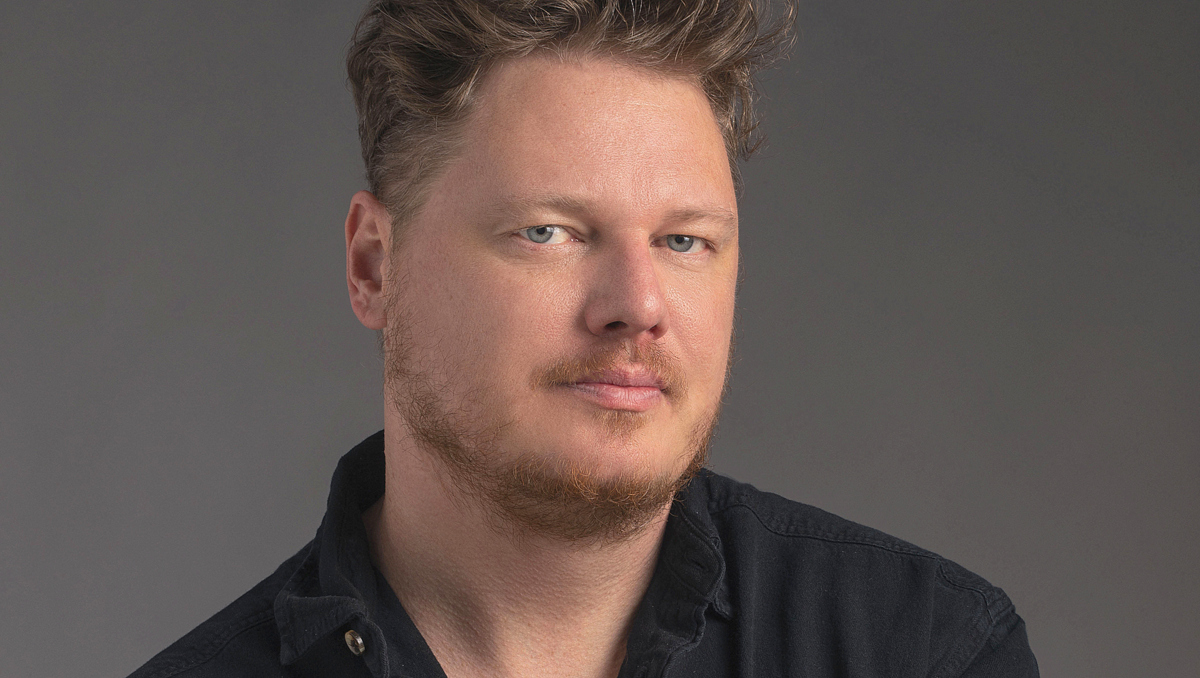
Nicolai Kornum is a filmmaker and photographer from London. He is the Producer of the Short Film Anthology The Isolation Horrors (2020), which was produced for online release during the Coronavirus Lockdown, in which Nicolai directs one segment; The Bloody Face Mask. He invited four other London filmmakers: M.W. Daniels, Emma Dark, Richard Markworth, and John Whitaker to contribute to the Anthology with their own take on Isolation Short Horror Films.
As a framing device for the anthology, you find my segment which follows a man who finds a bloody face mask on the street and calls his neighbors concerned about their well-being. The different segments by the other filmmakers then unfold as we see them in their place of isolation.
My working background is mainly in producing, directing, and filming Fashion Films and Campaigns, with a decade of previous experience as First Assistant Director on feature films, TV-Drama, and commercials. Doing The Isolation Horrors has been an opportunity to go back to passionate hands-on filmmaking, playing with a loved genre that is not often part of my professional life.
Click to Watch The Short Film Anthology Film: Isolation Horrors
indieactivity : Did you study what you do?
Nicolai Kornum : I studied at European Film College after which I worked my way up in the film industry as a First Assistant Director, eventually I went on to study with Soho editors in London, and later Lighting Design and Technical Theatre at London Academy of Music & Dramatic Art in London. Since then I have started the production house BlitzWerk Studio and owns my own photographic studio in east London.
How did you put the filmmakers together for “The Isolation Horrors”?
Nicolai Kornum (NK) : I invited four filmmakers; M. W. Daniels, Emma Dark, Richard Markworth & John Whitaker to contribute to the Anthology because it was an obvious choice. I had worked with all of them before and they all know each other professionally. They have worked on each other’s films, and they are all very capable of crafting a professional film with little means, and on top of that, they are all fans of the horror genre.
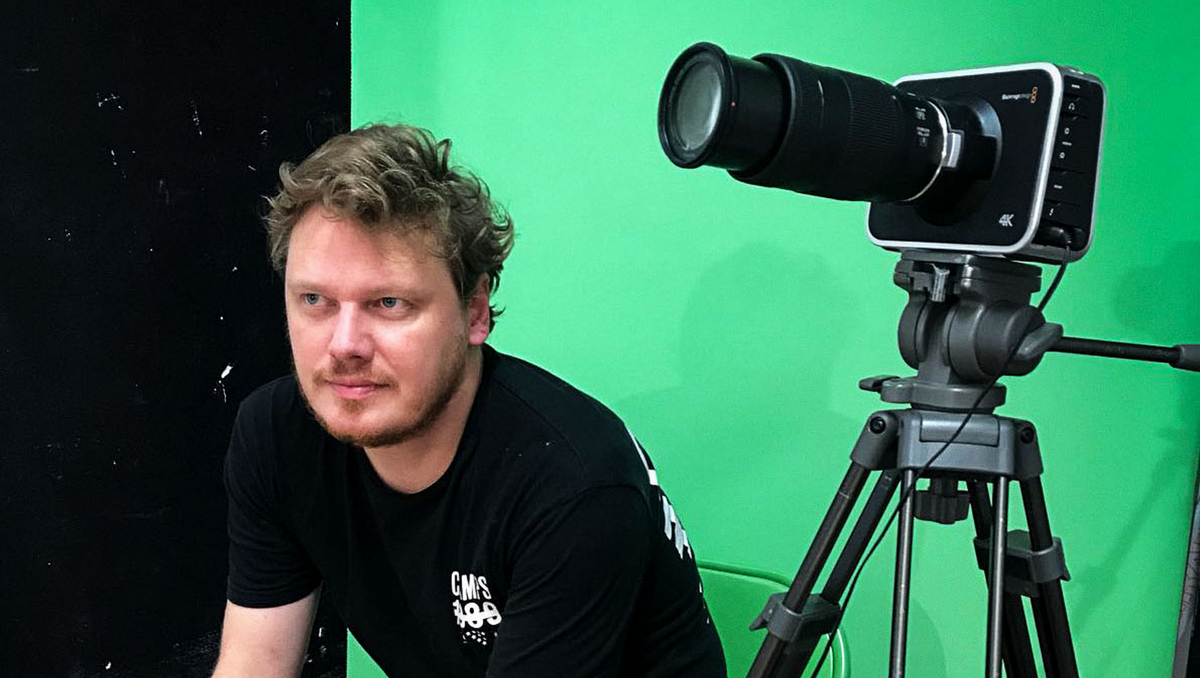
How did you collaborate with the other filmmakers on the project?
NK : Firstly, I put down some parameters myself: Shoot in your place of isolation, shoot on your phone, use only the people you are self-isolating with, and the film should be horror genre. The intention was to get all the films to fit together and have some kind of visual resemblance, and still leave the filmmakers enough room to feel free to create and develop their own idea, style and vision. All communication was over phone or video call, and I tried not to interfere in their creative vision. The project was meant to be fun and enjoyable for both the filmmakers as well as the audience.
Talk to us about your concept on collaboration?
NK : n general, one always wants to collaborate with passionate people who are pleasurable to be around. I think that is the most important quality in a network-based industry. You would rather spent your time with someone who is nice and talk nicely to people, than someone who is more talented or technically equipped, but is a pain to be in the same room with. In any collaboration you want to get everyone to deliver to the best of their ability, without being too competitive. I believe that the way to get that is to show respect for others and accept their limitations, and motivate their abilities, without demeaning them nor use fear as motivation. The object is to make the best production, made from passion, which needs to be nurtured and protected and exposed under safe conditions.
Take us through your preparation for the production of the film?
NK : First I came up with the rules and an overall production and narrative concept for the purpose of presenting a clear idea to the filmmakers to let them be inspired from. Fortunately, they all understood the concept immediately and instantly seemed to be inspired. Once everyone was on board, I formulated the practical parameters, schedules, coordinated their story pitch etc. After all the four films from the filmmakers were delivered to me, I filmed and finished my own segment that was to introduce and connect the four other films, and finish the whole anthology.
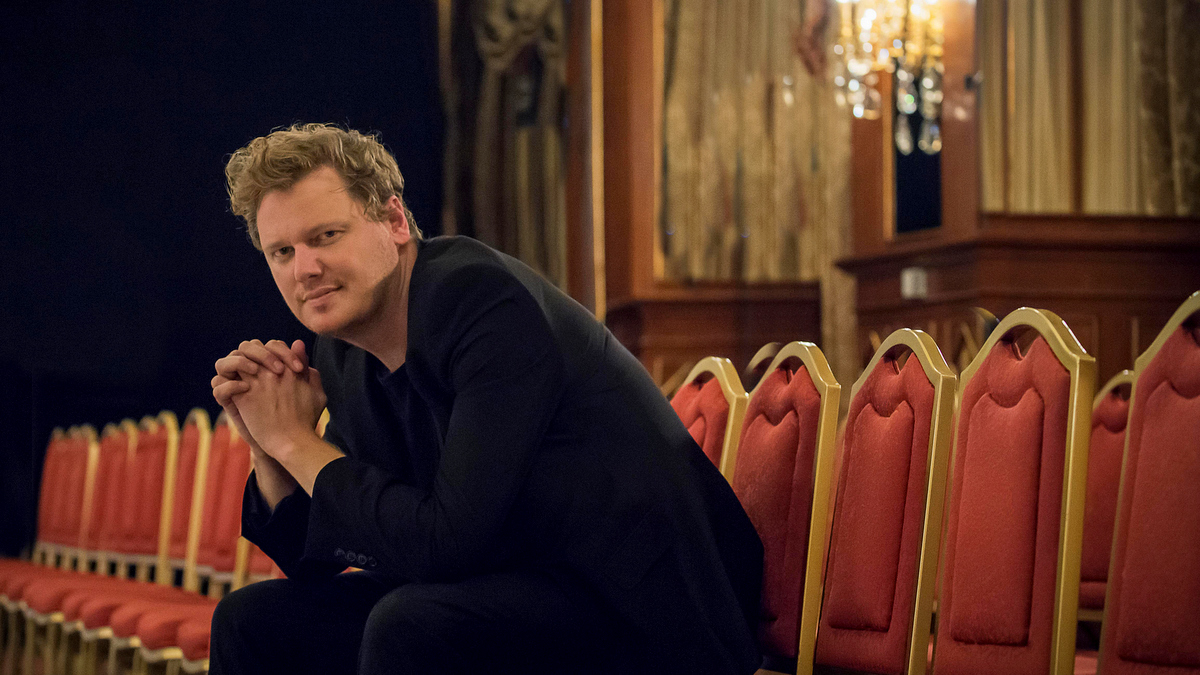
Do you have a process for breaking down a script?
NK : I believe the most important thing is to understand the three acts of the story and the development of the characters. In the individual scenes I look for the dramatic turning point, which I mark with big fat line as where the character-development happens, and I usually aim to do a visual change to show this development. Most scenes will have a character-development and specifying what that is and write it down helps me keep focused on set, what this scene is about, especially if you are filming out of sequence. I usually also prioritize the scenes if the schedule is tight. I am a firm believer that one elaborately solved scene can last over four less elaborately solved scenes. Meaning that you can shoot an important scene in the morning with multiple set-ups and then after lunch shoot four scenes quickly, all solved in a 2shot or reverse close-ups, etc.. the audience will remember the elaborately solved scene. A priority like this can be very helpful in the development of a tight realistic shooting schedule.
Tell us about your gear on this project?
NK : One of the rules in “The Isolation Horrors” was to shoot on your phone. This was mainly because not all filmmakers had access to a professional camera during the lockdown, and I thought it would add a quality of urgency and passionately filmmaking, and a way to get a resemblance in quality. Phones can be very different in quality, but it goes for all of them that you cannot attach film lenses. If you want a close up you have to move the phone closer to the object.
What and how long did it take to complete the production?
NK : Once we were all on board the delivery of the final films happened within 1-2 weeks. After which it took a couple of days to finish it all up and we could concentrate on an online release.
Did the tight shooting schedule make it harder or easier? How did it affect performances?
NK : I love a tight schedule and short pre-production period. I think the parameters provoke your creativity. You do not have time to fiddle about with your ideas or to spend time debating different options. You are forced to focus and make a decision right away. I think that is thrilling. And it gives a creative spontaneity, that I believe shows in the film. And if you know your craft you can use this to give a unique and fresh feeling to your production.
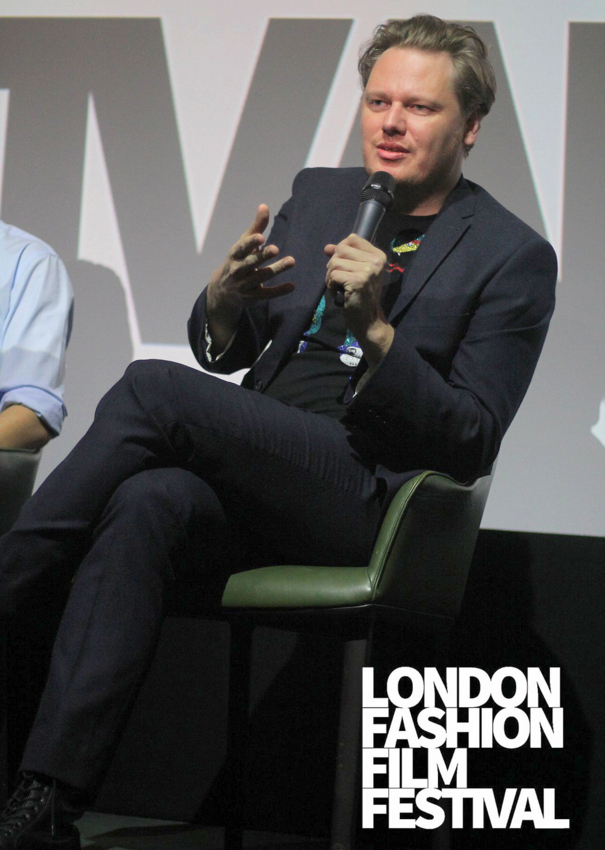
During the film production, what scene was the hardest to shoot? And why?
NK : I wanted to film a few scenes just outside my house and wanted to give it a specific atmosphere of horror. We were only 2 people on set, but we managed to get a 1000w light on the roof to shine on the street at night, with cables hanging out the windows, and have a smoke machine on the pavement. While I was acting I was controlling a dimmer hidden in my hand just out of shot. This had to be done very quickly not to attract unwanted attention from neighbours and curious people. But we did it and I am very happy with the result.
What worked better in this production that might not have worked so well in the last one you did?
NK : The communication. Being few people involved with little crew always helps the communication, which gives less opportunity for misunderstandings or disagreements, which is always a challenge to avoid on bigger sets.
Is there anything about the making of independent film business you still struggle with?
NK : Fundraising is always a challenge. Mainly because short films are not initially intended as a way to generate a financial income and it is usually not expected that you recoup investments. Independent short films has its own aesthetic, that works well as a portfolio for the filmmakers to show what they can do, how well they understand story telling and the utilisation of limited resources, which hopefully will catch the eye of Producers.
What uniqueness do female directors/filmmakers bring to film/TV/cinema?
NK : From my decade-long experience of being a 1st A.D. for both male and female directors I can say that I do not think that male directors bring any kind of uniqueness to film on the basis of their gender. The same goes for female directors. It is the individual talent that is unique, not their gender. Unfortunately, we still live in a world very much based on conventions from a misogynistic hetero-normalised patriarchy which amongst other things leads to under-representation of female directors in the industry. That should change.
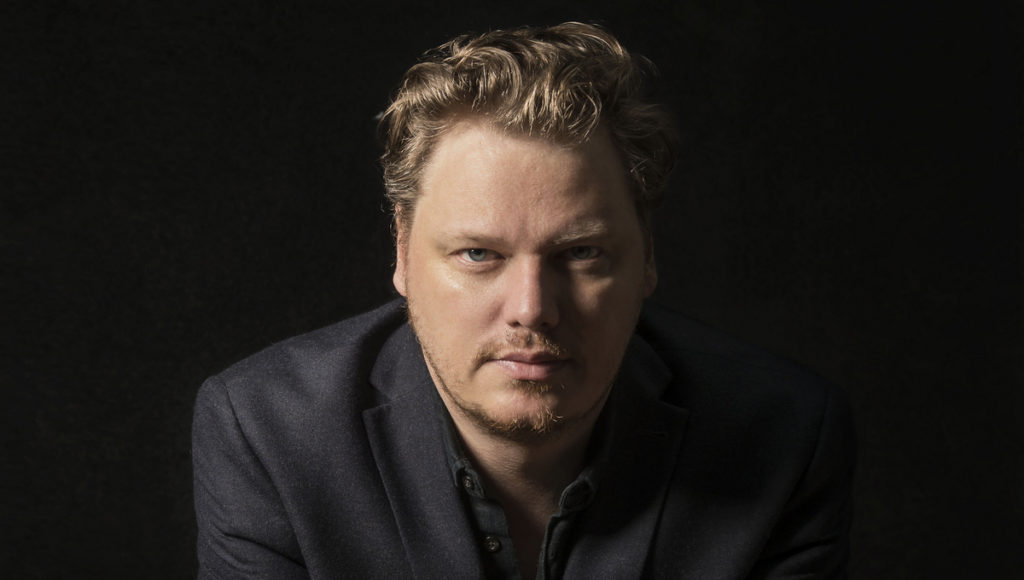
Let’s talk about finance, What was the financial situation on the film?
NK : Budget: £0. The rules dictated were intended so that no one should have the need to spent money. The intention was to tell stories about the resources you have available. Luckily we all had phones and the facilities to edit and construct the film.
How would you have shot this project if your budget was 3x the figure?
NK : If we had a budget we would have set different rules and developed a different story. I imaging that with a higher budget, assuming that the lockdown was over, we would consider hiring locations, actors, and crew members. It would give us an opportunity to heighten the production value by shooting over several days and elaborate on the lighting of the sets.
At what period in the filmmaking process, do you need to start planning for distribution?
NK : I believe in vertical integration when it comes to filmmaking. You need to think about marketing and distribution from the moment you are developing the project. All the way through pre-production, production, and postproduction. You need to be aware of the platform where your film will be exhibited and what the audience is. For short films to reach an audience the main form of the exhibition is to get them to film festivals. Luckily there are today many digital festivals around the world, and that is where producers look to find new talent.
When you are offered a project, what things do you put in place to deliver a good job?
NK : First I put in place what the client expects for the fee and budget he provides. Which is ultimately what I aim to deliver. The conditions are very different if it is an independent narrative piece or a commercial film or music video etc., but ultimately your job is to utilize the budget available to its maximum capacity. Therefore it is important to brief the client on what exactly he should except for the budget he has, including the fee you are paid and the budget you have to work with. That way the client should not be surprised. On that note, I always believe that filmmakers who are paid their full and fair fee is more likely to come up with creative solutions to keep your budget down.
How do you find the process of filmmaking as an indie filmmaker?
NK : Amazing. It is so healthy for your creativity and passion to get away from the big production machine and just create. It is thrilling to see thoughts and ideas come alive immediately without the need of having them discussed and approved and developed by multiple executives, departments or clients.
Tell us about what you think indie filmmaker need in today’s world of filmmaking.
NK : Unique ideas. The most impressive and memorable independent short films are the ones that creates something new. A new way of using the film media, of telling the story, of commenting on the world. A short film with a high budget and unlimited equipment & crew can produce something of high production value but falls short if the idea is trivial and seen before.
Where do you think your strengths lie as a filmmaker?
NK : I believe my strengths lie in a good sense for logistics, for scheduling, and in film-technical knowledge and a talent for finding solutions within ever-changing conditions.
What do you hope audiences will get from the presentation of your film?
NK : A love for filmmaking. Inspiration to just go and do it, without crew, without a budget, without expensive equipment, just armed with your talent, your film knowledge, your story-telling abilities, and an inspirational idea.
What else have you got in the works?
NK : During the self-isolation period I am finishing editing a Fashion Film that was shot in Los Angeles last year that will premiere at La Jolla International Fashion Film Festival in California this July. At the same time as producing a video campaign for a skin treatment clinic, I am at the moment developing my own produced erotic thriller short film.
Tell us what you think of the interview with “Nicolai Kornum” What do you think of it? What ideas did you get? Do you have any suggestions? Or did it help you? Lets have your comments below and/or on Facebook or Instagram! Or join me on Twitter @oladapobamidele
Follow Nicolai Kornum on Social Media
Website
IMDb
Facebook
Twitter
Instagram
Studio
Richard Green Documentary, ‘I Know Catherine, The Log Lady’: Premiere in NYC, LA May 9th
Lynchian Doc I Know Catherine, The Log Lady Makes Hollywood Premiere 4/17, Rollout to Follow
In Camera by Naqqash Khlalid Launch on VOD April 29
Naqqash Khlalid’s Directs Nabhan Rizwan. In Camera stars an EE BAFTA Rising Star Award Nominee.
2025 Philip K. Dick Sci-Fi Film Festival Award Winners Announced
Vanessa Ly’s Memories of the Future Awarded Best PKD Feature
Dreaming of You by Jack McCafferty Debuts VOD & DVD for April Release
Freestyle Acquires “Dreaming of You” for April 15th Release
Hello Stranger by Paul Raschid set for London Games Festival & BIFFF
The film Is set for an April 10th Premiere at The Genesis Cinema in London (LGF) and BIFFF
Daydreamers Official Trailer by Timothy Linh Bui: Released by Dark Star Pictures
Daydreamers Vietnamese Vampire Thriller – May 2nd release









